Share

Berkeley Voices
Psychopathy goes undetected in some people. Why?
In a June 2024 study, UC Berkeley psychology professor Keanan Joyner and his colleagues found that by using a combination of methods tailored to the multidimensional nature of psychopathy, we could transform how we identify and understand this personality disorder. "I think that it goes toward having a functional and positive society," Joyner said. "Our collaboration is the substance of what makes humans so wonderful as a species."
Key takeaways:
- Psychopathy exists on a spectrum
- Boldness is a key, yet largely overlooked, trait of psychopathy
- By changing the way we measure psychopathy, we could reduce the harms of the personality disorder
This year on Berkeley Voices, we're exploring the theme of transformation. In eight episodes, we’ll explore how transformation — of ideas, of research, of perspective — shows up in the work that happens every day at UC Berkeley. New episodes will come out on the last Monday of each month, from October through May.
See all episodes of the series.
Listen to the episode and read the transcript on UC Berkeley News (news.berkeley.edu/podcasts).
Image via Unsplash+
More episodes
View all episodes
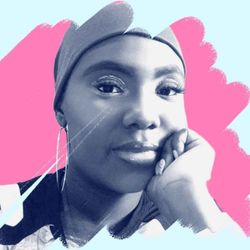
3. How CRISPR 'supercells' cured her sickle cell disease
35:27||Season 2, Ep. 3At 3 months old, Victoria Gray wouldn’t stop crying. Blood tests brought devastating news: she had sickle cell disease, a genetic blood disorder that blocks blood flow and oxygen delivery to the body. It causes unbearable pain that Victoria describes as “getting struck by lightning and hit by a truck.”As she got older, Victoria felt increasingly isolated and hopeless. She often spent her kids’ birthdays at the hospital, where she received regular blood transfusions. “I felt like I was cheating my children out of their childhood,” she says. “I didn’t look forward to a long life. I stopped dreaming. I gave up on school or doing anything … I thought that I was close to dying.”But at age 34, Victoria got a new chance at life. In 2019, she became the first person in the world to receive a revolutionary new treatment for the disease — a gene-editing tool called CRISPR discovered in a UC Berkeley lab, which would go on to win a Nobel Prize just one year later. “It felt like an answered prayer for me,” says Victoria. “CRISPR not only freed me, it freed my children.” This is the third episode of our latest Berkeley Voices season, featuring UC Berkeley scholars working on life-changing research — and the people whose lives are changed by it.Listen to the episode and read the transcript on UC Berkeley News (news.berkeley.edu/podcasts/berkeley-voices).Music by Blue Dot Sessions.Photo courtesy of Victoria Gray; illustration by Neil Freese/UC Berkeley.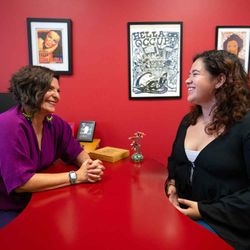
2. Wikipedia as resistance
12:50||Season 2, Ep. 2After Wikipedia made its debut in 2001, some trends quickly emerged. Most editors were male, topics tended to skew toward geek culture interests like computing and gaming, and only a small fraction of biographies were about women. More than two decades later, biases and knowledge gaps on Wikipedia of all sorts remain, especially for marginalized communities. But a UC Berkeley professor and her students are working to change that.Since 2016, ethnic studies professor Juana María Rodríguez has partnered with Wiki Education to teach a range of courses in which students create and edit Wikipedia articles about the contributions of LGBTQ people, especially queer and trans people of color. “Wikipedia is a public-facing project — it’s the largest encyclopedia in the world,” says Rodríguez. “In a political moment where these histories are actively being erased from public view, having students work on a platform like Wikipedia becomes even more important.”This is the second episode of a new Berkeley Voices season, featuring UC Berkeley scholars working on life-changing research and the people whose lives are changed by it.Listen to the episode and read the transcript on UC Berkeley News (news.berkeley.edu/podcasts/berkeley-voices).Music by Blue Dot Sessions.UC Berkeley photo by Brandon Sánchez Mejia.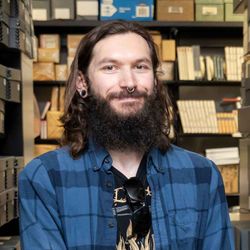
1. How a Pomo elder's recordings are helping this student reclaim his culture
23:04||Season 2, Ep. 1Tyler Lee-Wynant grew up hearing stories about his great-great aunt, Edna Campbell Guerrero. Born in 1907 in Mendocino County, she was a native speaker of Northern Pomo, one of seven languages spoken by the Pomo people who are Indigenous to Northern California. “She was a no-nonsense person,” says Lee-Wynant, a UC Berkeley Ph.D. student in linguistics. “She was an amazing individual. She cared so deeply about passing on what she knew.”For more than 50 years, Guerrero worked with Berkeley linguists to document her language and culture. These recordings are part of the campus’s California Language Archive. In them, she tells stories, describes cultural practices, says vocabulary and conjugates verbs. Whenever Lee-Wynant hears his aunt’s voice, strong and determined, he knows it’s his responsibility to carry on her work. As a graduate student researcher for the archive, Lee-Wynant is cataloging and analyzing a new collection that includes hours of recordings of his aunt, among other materials. “It's such a trove of information about ... my family's history,” he said. “I always get the chills whenever I listen to it because you never know what story is gonna come up.”In this episode of Berkeley Voices, Lee-Wynant shares how his aunt's recordings have opened a portal to his family’s history and led him to teach their language to new generations.And in this UC Berkeley News companion piece, learn more about the linguist who created the archive's newly acquired collection, her lifetime of research with Indigenous communities and how her collection of tapes and notebooks found their way to the archive. This is the first episode of a new Berkeley Voices season, featuring UC Berkeley scholars working on life-changing research and the people whose lives are changed by it. New episodes come out on the first Thursday of every month, from November through April.Listen to the episode and read the transcript on UC Berkeley News (news.berkeley.edu/podcasts/berkeley-voices).Music by Blue Dot Sessions.UC Berkeley photo by Brittany Hosea-Small.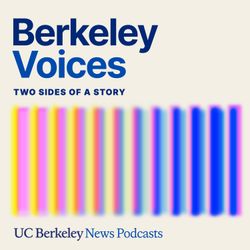
New season: Two sides of a story
01:53|There’s so much incredible research and work that happens every day at UC Berkeley, on everything from artificial intelligence and quantum computing to linguistics and the study of social justice. It holds the record for the most Nobel Prize winners among any public university in the world, with two wins just this year.This work can be highly theoretical and technical, taking decades to fully develop. Yet its impact extends far beyond academia, leading to world-changing results, from the invention of CRISPR gene editing that has saved lives to ethnic studies courses that foster a stronger sense of identity and critical consciousness. Within these broad impacts are millions of stories of how Berkeley’s research has transformed society. In this season of Berkeley Voices, we hear two sides of a story — from Berkeley scholars working on life-changing research, and from the people who’ve been changed by it.New episodes will come out on the first Thursday of each month, from November through April. Listen to Berkeley Voices on your favorite podcast app or on YouTube @BerkeleyNews. You can find all of our podcast episodes, with transcripts and photos, on UC Berkeley News at news.berkeley.edu/podcasts.Listen to the episode and read the transcript on UC Berkeley News (news.berkeley.edu/podcasts/berkeley-voices).Music by Blue Dot Sessions.UC Berkeley design by Neil Freese.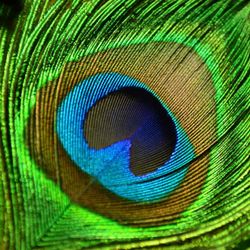
8. How new color 'olo' stretches the limits of human perception
18:38||Season 1, Ep. 8Last month, UC Berkeley researchers published a study about how they tricked the eye into seeing a new color. It was a highly saturated teal, a peacock green, the greenest of all greens. The scientists produced this color, which they named “olo,” by shining a laser into the eye and stimulating one type of color-sensitive photoreceptor cells called cones. Austin Roorda, a professor of optometry and vision science at Berkeley’s School of Optometry, developed the optical imaging platform they used in this project. It’s called Oz, after the story The Wonderful Wizard of Oz. In the 1939 film adaptation, the lead character, Dorothy, goes from her black-and-white farm in Kansas to the color world of Oz.“Ozvision is really directly tied to the book and to the movie where the Emerald City is this unearthly green color,” said Roorda. “The intent and the aspiration was to elicit that same kind of response by going from a natural-colored world to a supernatural-colored world by a direct stimulation of these cones.” It has enormous potential, he said, to transform how we understand and treat eye diseases, and to expand the way we see the world around us.Listen to the episode and read the transcript on UC Berkeley News (news.berkeley.edu/podcasts).Music by Blue Dot Sessions.Photo via Unsplash+This is the last episode of our Berkeley Voices series on transformation. In eight episodes, we have looked at how transformation — of ideas, of research, of perspective — shows up in the work that happens every day at UC Berkeley. We'll be back with a new series in the fall.See all episodes of the series.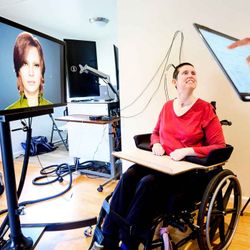
7. AI helped this paralyzed woman speak again after 18 years
17:04||Season 1, Ep. 7When Ann Johnson had a rare brainstem stroke at age 30, she lost control of all of her muscles. One minute, she was playing volleyball with her friends. The next, she couldn’t move or speak. Up until that moment, she’d been a talkative and outgoing person. She taught math and physical education, and coached volleyball and basketball at a high school in Saskatchewan, Canada. She’d just had a baby a year earlier with her new husband. And the thing is, she still was that person. It's just that no one could tell. Because the connection between her brain and her body didn’t work anymore. She would try to speak, but her mouth wouldn’t move. Eighteen years later, she finally heard her voice again.It's thanks to researchers at UC Berkeley and UC San Francisco who are working to restore people’s ability to communicate using a brain-computer interface. The technology, the researchers say, has enormous potential to make the workforce and the world more accessible to people like Ann. Listen to the episode and read the transcript on UC Berkeley News (news.berkeley.edu/podcasts). There, you can also watch a video about Ann and the research team.Music by Blue Dot Sessions.Photo by Noah Berger, 2023.This year on Berkeley Voices, we’re exploring the theme of transformation. In eight episodes, we explore how transformation — of ideas, of research, of perspective — shows up in the work that happens every day at UC Berkeley. New episodes come out on the last Monday of each month, from October through May.See all episodes of the series.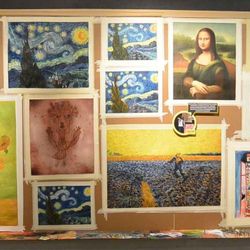
6. Fakes, replicas and forgeries: What counts as art?
23:42||Season 1, Ep. 6When Winnie Wong first saw Dafen Oil Painting Village in 2006, it was nothing like she’d imagined. The Chinese village was known for mass producing copies of Western art. She’d read about it in The New York Times, which described a kind of compound where thousands of artists painted replicas of famous artworks, like da Vinci’s Mona Lisa or van Gogh’s Starry Night, for European and U.S. hotels and condos.“We had an expectation, which was that there would be this giant factory,” said Wong, a professor of rhetoric at UC Berkeley. “And in this factory, there would be these painters working in an assembly line fashion: One person would paint the rocks, and one person would paint the trees, and one person would paint the sky.”But when she arrived in the small gated village, what she saw surprised her. In 2013, she published van Gogh on Demand: China and the Readymade, a book about her six years of research in Dafen and how it forever changed the way she thinks about art and authenticity and the nature of creativity.See more artwork and photos of Dafen from 2015, when Wong and architecture professor Margaret Crawford took a group of graduate students on a 14-day trip to the Pearl River Delta region to study urban art villages.Listen to the episode, read the transcript and see more photos on UC Berkeley News (news.berkeley.edu/podcasts).Music by Blue Dot Sessions.Photo by José Joaquin Figueroa.This year on Berkeley Voices, we're exploring the theme of transformation. In eight episodes, we explore how transformation — of ideas, of research, of perspective — shows up in the work that happens every day at UC Berkeley. New episodes come out on the last Monday of each month, from October through May.See all episodes of the series.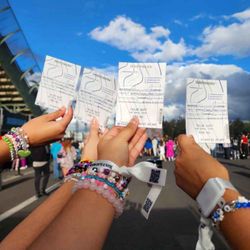
5. An evolution of American friendship, from Victorian-era letters to Swiftie bracelets
14:40||Season 1, Ep. 5Have you ever seen letters from the 1800s? Aside from the pristine penmanship and grammar, the way friends expressed their fondness for each other is remarkable.“Letters sent between friends are often full of the kinds of loving and affectionate language that today we would only associate with romantic or sexual relationships: ‘My darling,’ ‘I love you,’ ‘I can't wait to be near you,’” said UC Berkeley historian Sarah Gold McBride, who in 2022 created the course, Friendship in America, with Berkeley anthropologist Christine Palmer. Throughout history, with changes in cultural norms and communication technology, the ways we stay connected to each other has also changed, and not always for the better. While social media can make it easier to find people with similar interests, it can also make it easier to forget what it takes to build and keep meaningful relationships. Gold McBride and Palmer hope their class will inspire students to draw from the past and approach their friendships with the intentionality they require.This is the fifth episode of our eight-part series on transformation. In eight episodes, we’re exploring how transformation — of ideas, of research, of perspective — shows up in the work that happens every day at UC Berkeley. New episodes of the series come out on the last Monday of each month. See all episodes of the series.Key takeaways:Gender norms, throughout U.S. history to the modern day, influence the kinds of friendships we make and how we express affection for each other.As our dominant modes of communication shift, how we conceive of friendship evolves, too.By investigating friendship in a deeper way, we can better understand the role of friendship in our lives and become more intentional in how we make and maintain our connections.Read the transcript, listen to episode and see photos on UC Berkeley News (news.berkeley.edu/podcasts).Find us on YouTube@BerkeleyNews.Music by Blue Dot Sessions.Photo by Sarah.rdguezz via Wikimedia Commons.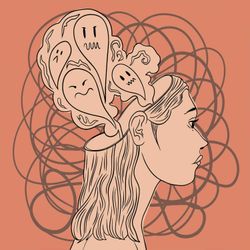
4. How fear is being weaponized against you (and how to respond)
22:33||Season 1, Ep. 4Against her mom’s warnings, UC Berkeley political scientist Marika Landau-Wells watched Arachnaphobia as a kid. Ever since, she has been terrified of spiders. But over the years, she has learned to reason with her quick fear response — No, that spider is not 8 feet in diameter — and calmly trap them and put them outside.We all encounter problems like this, she says, where we have quick reactions to things we’ve learned to fear. It might be something that is actually dangerous that we really should quickly react to, but it could also be a tiny, non-threatening spider. Each time, we have to decide what kind of problem it is and then how to respond. She says this task is especially hard today because we're inundated with messages trying to hijack our fear response, from junky online ads to the way politicians speak.Landau-Wells studies how we make these kinds of decisions, and what influences how we act, especially in situations where there’s a lot on the line.This is the fourth episode of our eight-part series on transformation. In eight episodes, we’re exploring how transformation — of ideas, of research, of perspective — shows up in the work that happens every day at UC Berkeley. New episodes of the series come out on the last Monday of each month. See all episodes of the series.Key takeaways:We learn what to be afraid of; once we fear something, it’s hard to change our perception.We’re bombarded with messaging trying to hijack our quick fear responses.Research on how the brain processes fear could help us persuade people to see dangers differently and influence how world leaders make decisions.Listen to the episode and read the transcript on UC Berkeley News (news.berkeley.edu/podcasts).Music by Blue Dot Sessions.Image by Sara Oliveira/Unsplash+